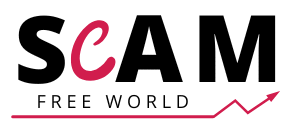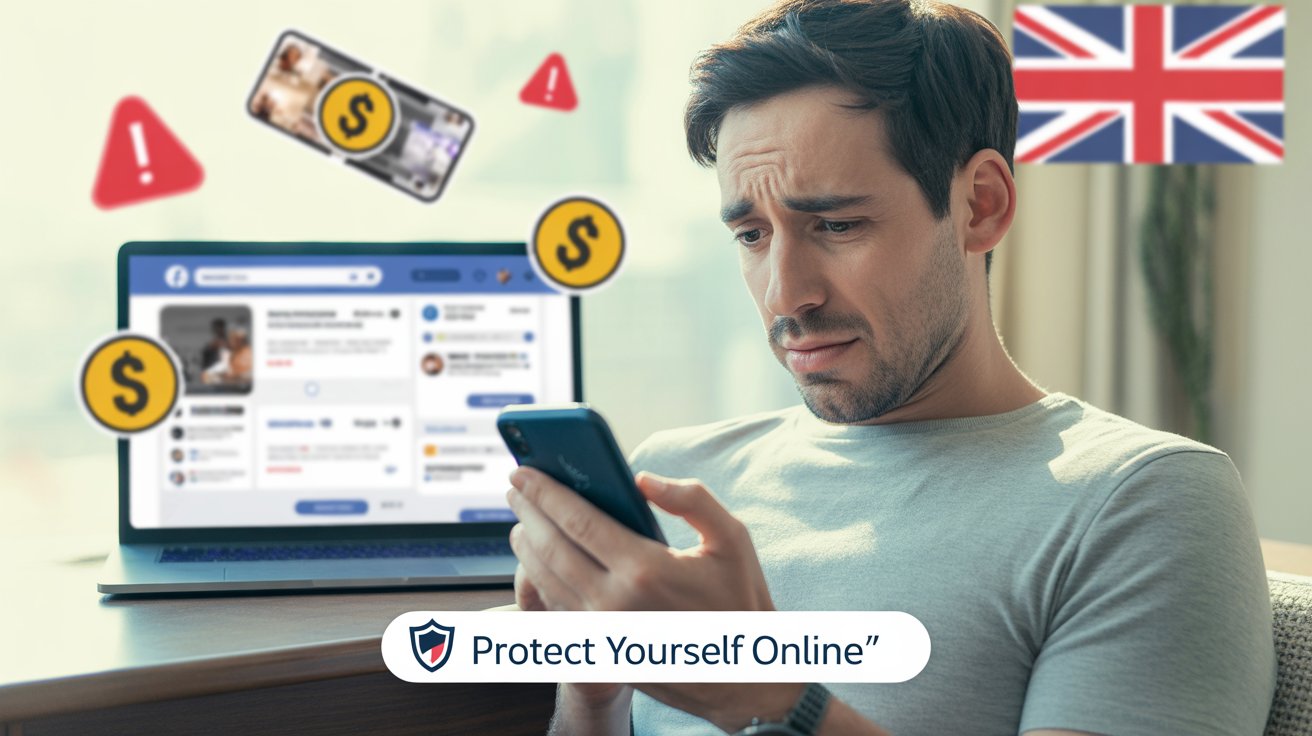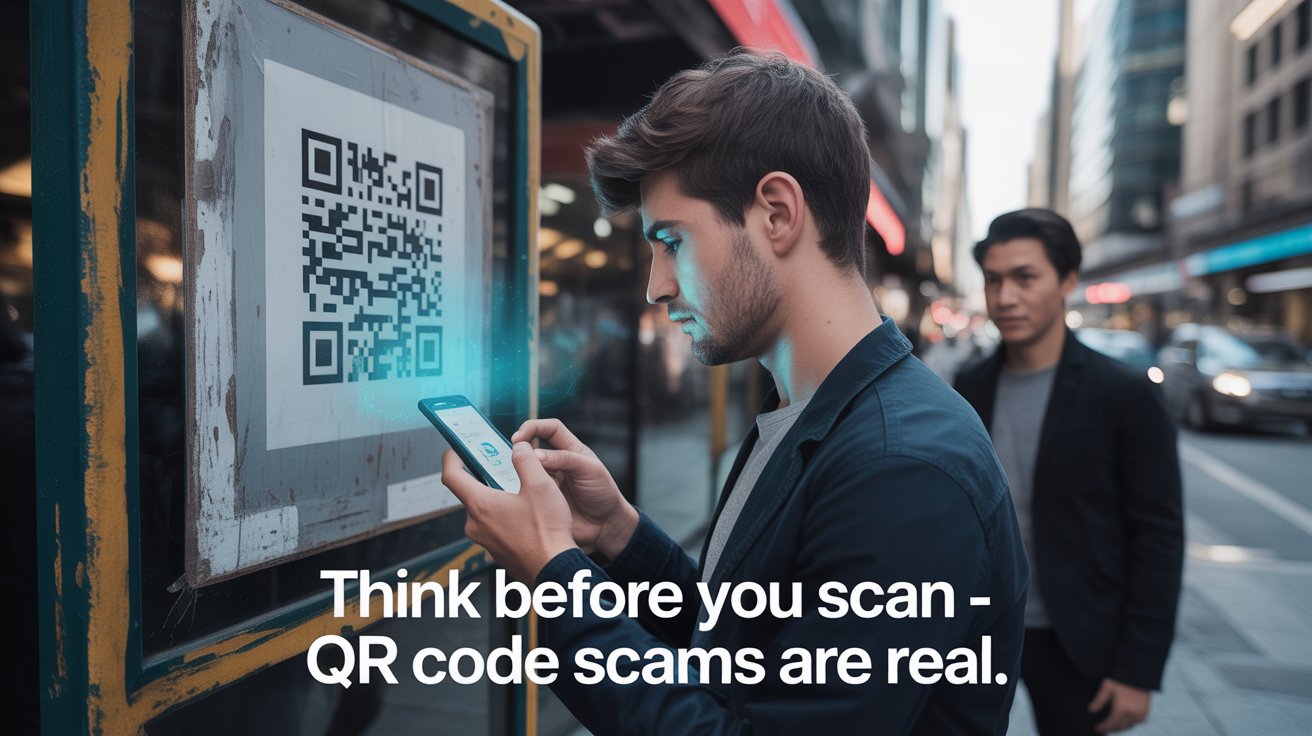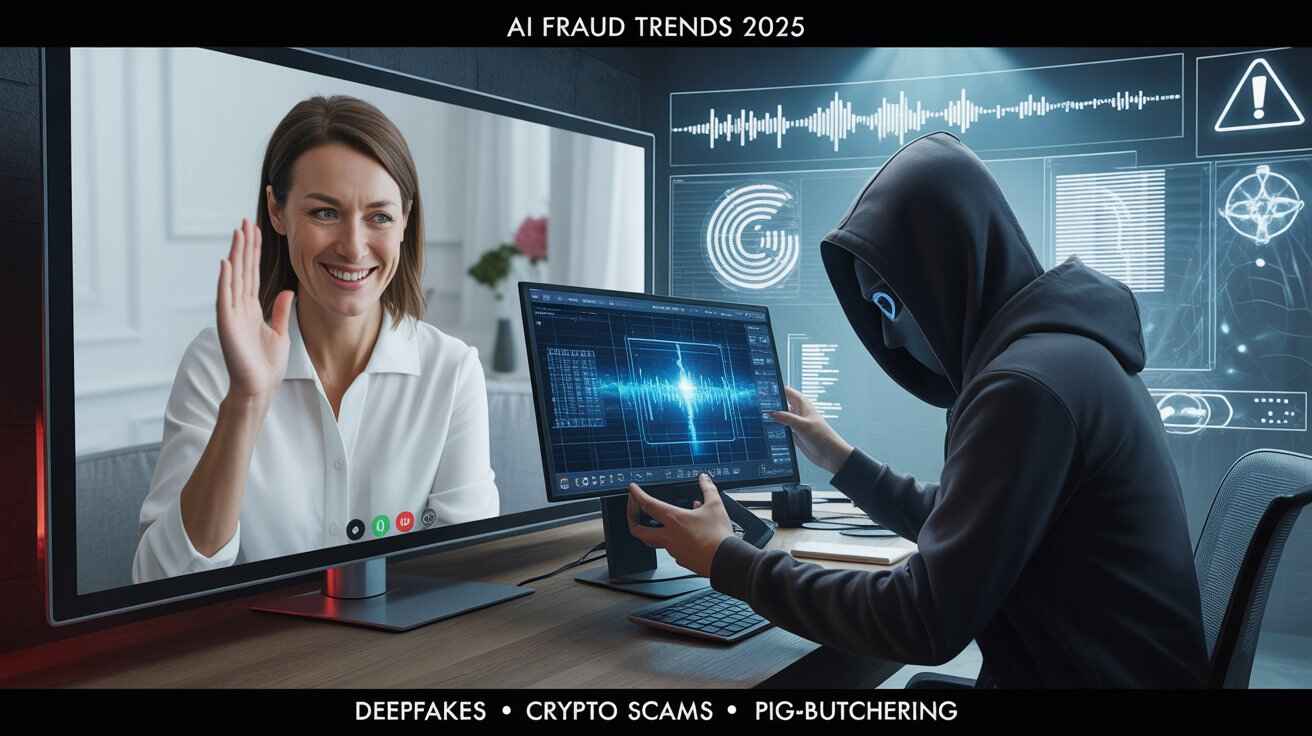In today’s world, Facebook Marketplace has become the UK’s go-to platform for buying and selling everything from second-hand furniture to the latest tech gadgets. But with its rising popularity comes a darker side—Facebook Marketplace scams in the UK are growing at an alarming rate.
At ScamFreeWorld.co.uk, we’ve received hundreds of reports from UK residents who were either conned out of their money or ended up selling to fraudsters. In this in-depth blog, we’ll take you through:
- The most common types of Facebook Marketplace scams UK
- Real-life examples happening right now
- Red flags to look out for
- Step-by-step tips to protect yourself
- What to do if you’ve been scammed
Let’s dive in and make your buying and selling journey on Facebook safer and scam-free!
Why Facebook Marketplace Is a Hotbed for Scammers
With over 50 million UK users on Facebook and thousands of items listed daily, the Marketplace has become a goldmine—not just for bargain hunters, but unfortunately, for fraudsters too.
Here’s why scammers love Facebook Marketplace:
- No Buyer/Seller Protection: Unlike platforms like eBay or Amazon, there’s no official protection from Facebook for transactions gone wrong.
- Easy Anonymity: Fake profiles can be made within minutes.
- Desperation for Quick Sales: Both buyers and sellers looking for quick deals often ignore red flags.
- Minimal Moderation: Facebook’s automated filters can’t keep up with the volume of listings.
And that’s the perfect storm for Facebook Marketplace scams UK to thrive.
Most Common Facebook Marketplace Scams in the UK (2025 Edition)
Let’s break down the most dangerous and commonly reported scams in the UK as of this year:
1. Overpayment Scam
A scammer poses as a buyer and sends you more money “by accident” via PayPal or bank transfer, then asks for a refund of the extra amount. Eventually, the original payment turns out to be fake or reversed.
2. Fake Payment Confirmation Emails
You’ll receive what looks like a legitimate PayPal or bank email confirming a payment. But on closer inspection, it’s a fake email with no money ever sent.
3. Counterfeit or Stolen Goods
Scammers list popular tech products like iPhones or PlayStations at unbelievably low prices. Once paid, either you receive a fake item—or nothing at all.
4. Item Never Arrives
You pay for an item via bank transfer or PayPal Friends & Family. The seller disappears after receiving the money, leaving you empty-handed.
5. QR Code Scams
A scammer tricks sellers into scanning a QR code to “receive” payment, but it ends up authorising a payment instead—draining their bank account.
6. Phishing for Personal Info
Scammers may message you pretending to be interested in your product, then send a malicious link or ask for personal details like phone number, address, or even banking info.
These scams are evolving and becoming increasingly sophisticated, which is why awareness is your strongest defence.
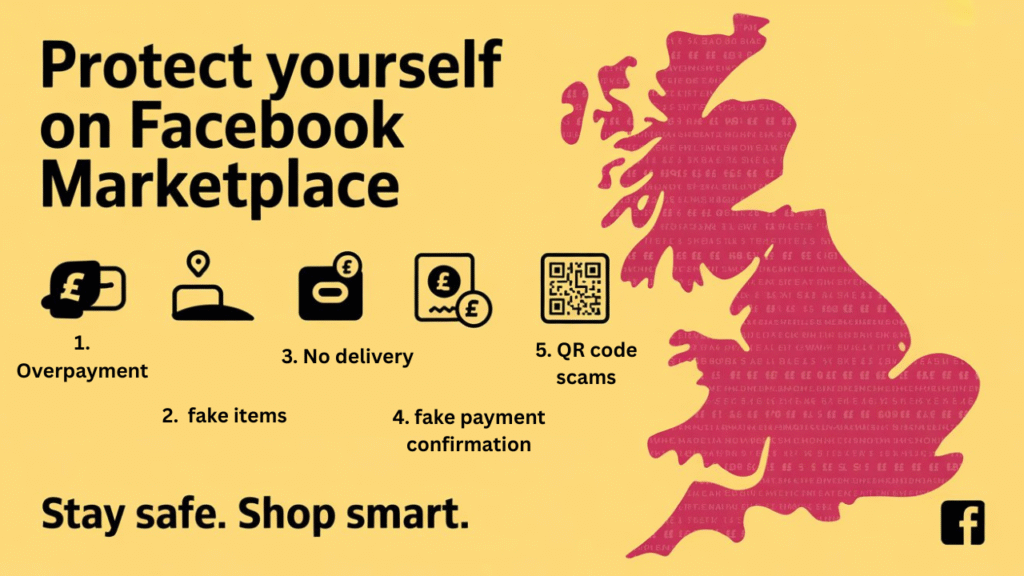
Real UK Victim Stories (Names Changed)
Emma from Birmingham: The iPhone That Never Arrived
Emma saw an iPhone 13 listed for just £180. The seller claimed it was a “quick sale due to upgrade.” Emma transferred the money and never heard from the seller again.
Tom from Glasgow: Fake PayPal Alert
Tom was selling his PlayStation 5. A buyer claimed they sent the money via PayPal and even forwarded a convincing-looking email. Tom shipped the console. Days later, he realised there was no money in his account.
These stories are just a glimpse of how damaging Facebook Marketplace scams in the UK can be—emotionally and financially.
How to Spot a Facebook Marketplace Scam
Spotting the warning signs early can save you from becoming the next victim. Here are key red flags to look out for:
- Too Good to Be True Deals: If the price seems too low, it probably is.
- Poor Communication: Vague responses, poor grammar, or evasiveness are common traits of scammers.
- Rush Tactics: Scammers often push you to act fast before “someone else buys it.”
- Refusal to Meet in Person: Be cautious if the buyer/seller refuses to meet or insists on shipping.
- Unusual Payment Requests: If someone asks you to pay via gift cards, cryptocurrency, or Friends & Family on PayPal—run.
- Fake Profiles: New accounts with little to no activity, no friends, or fake photos.
Always follow the golden rule: Trust your gut.
10 Safety Tips for Using Facebook Marketplace in the UK
Whether you’re buying or selling, these safety tips can help you stay protected:
- Meet in Public Places – Always meet during daylight hours in a public location like a police station parking lot.
- Take a Friend Along – Safety in numbers. Avoid solo meetups with strangers.
- Use Secure Payments – Avoid cash or bank transfers; prefer PayPal Goods & Services for added protection.
- Never Share Personal Info – Don’t give out your home address, phone number, or financial details.
- Inspect Before You Buy – For high-value items, always test them on the spot before paying.
- Google Reverse Image Search – If an item’s photo looks too polished or professional, reverse search it to check if it’s stolen from another listing.
- Check Buyer/Seller Profile – A real profile usually has public friends, photos, and recent activity.
- Avoid Clicking Unknown Links – Scammers often use phishing links disguised as “payment portals.”
- Document Everything – Keep a screenshot record of all communications and payment confirmations.
- Report Suspicious Activity – If something seems off, report the profile or listing directly to Facebook.
Following these guidelines can dramatically reduce your chances of falling for a Facebook Marketplace scam in the UK.
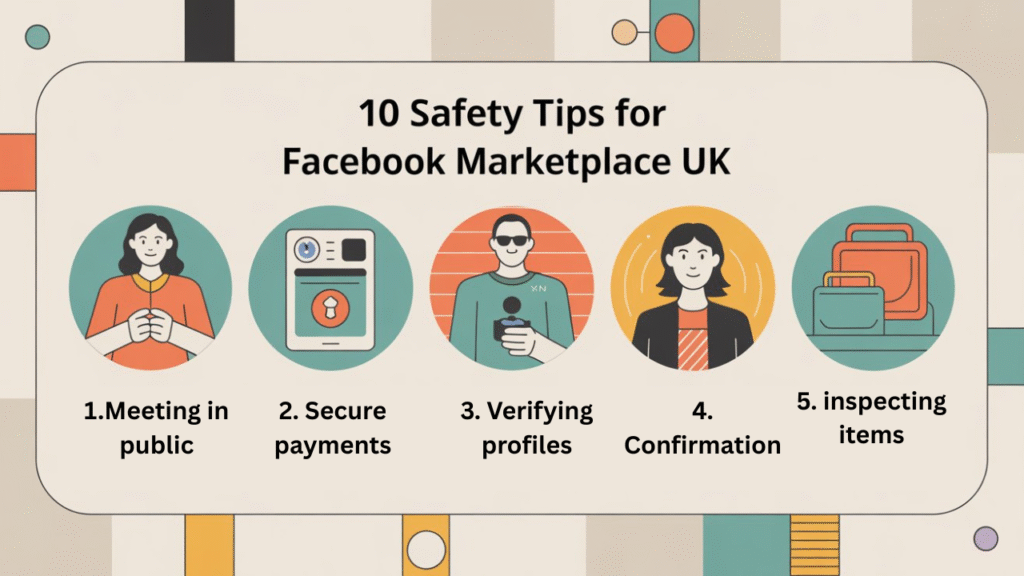
What To Do If You’ve Been Scammed
If you think you’ve been scammed, time is of the essence. Here’s what to do:
1. Report the Seller/Buyer to Facebook
Go to their profile or the listing and click “Report.” This helps Facebook flag or remove the scammer.
2. Contact Your Bank or PayPal Immediately
Explain the situation and request a reversal or dispute the transaction.
3. Report to Action Fraud UK
Submit a complaint on ActionFraud.police.uk or call 0300 123 2040. It’s the UK’s national fraud and cybercrime reporting centre.
4. Warn Others
Leave feedback on community groups or local forums. Sharing your experience may prevent others from falling into the same trap.
5. Contact Us at ScamFreeWorld.co.uk
We’re here to help. Email us your story at help@scamfreeworld.co.uk and we’ll guide you on how to report, recover, and stay secure.
Facebook’s Role & The Need for Accountability
Facebook has added some safety tools like buyer/seller ratings and content filters. But with scams rising every month in the UK, is it doing enough?
Advocates and users are calling for:
- Verified seller badges
- Stronger buyer protection programs
- Real-time fraud detection
- Mandatory scam education prompts
At ScamFreeWorld, we believe tech giants must be held accountable. While personal responsibility is key, platform-level safety must evolve too.
Final Words: Stay One Step Ahead
Scams may be evolving, but awareness is always your first and most powerful line of defence.
By knowing the signs, staying cautious, and helping others become aware, you’re doing your part to clean up the Marketplace—and keep your wallet safe.
Remember, the best deal is the one that’s real—not risky.
Read More Scams – https://scamfreeworld.co.uk/paypal-docusign-scam/
